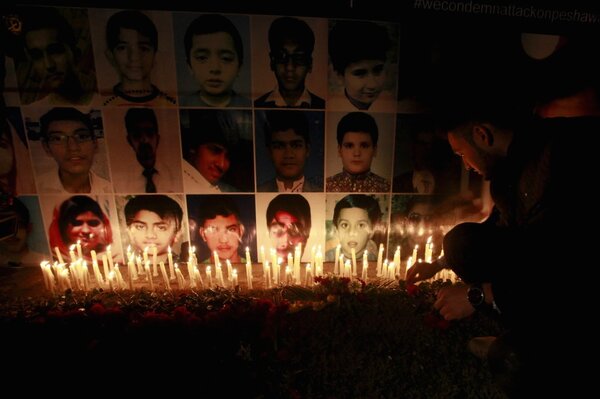In revenge for the school attack? Most certainly as that seems to be the Muslim mentality. And it should only unleash more suicide and other types of terror attacks. It just never seems to stop, does it?
Read the full story @ Peshawar School Attack Pakistan Plans To Execute 500 Militants After Lifting Ban On Death Penalty
Read the full story @ Peshawar School Attack Pakistan Plans To Execute 500 Militants After Lifting Ban On Death Penalty



